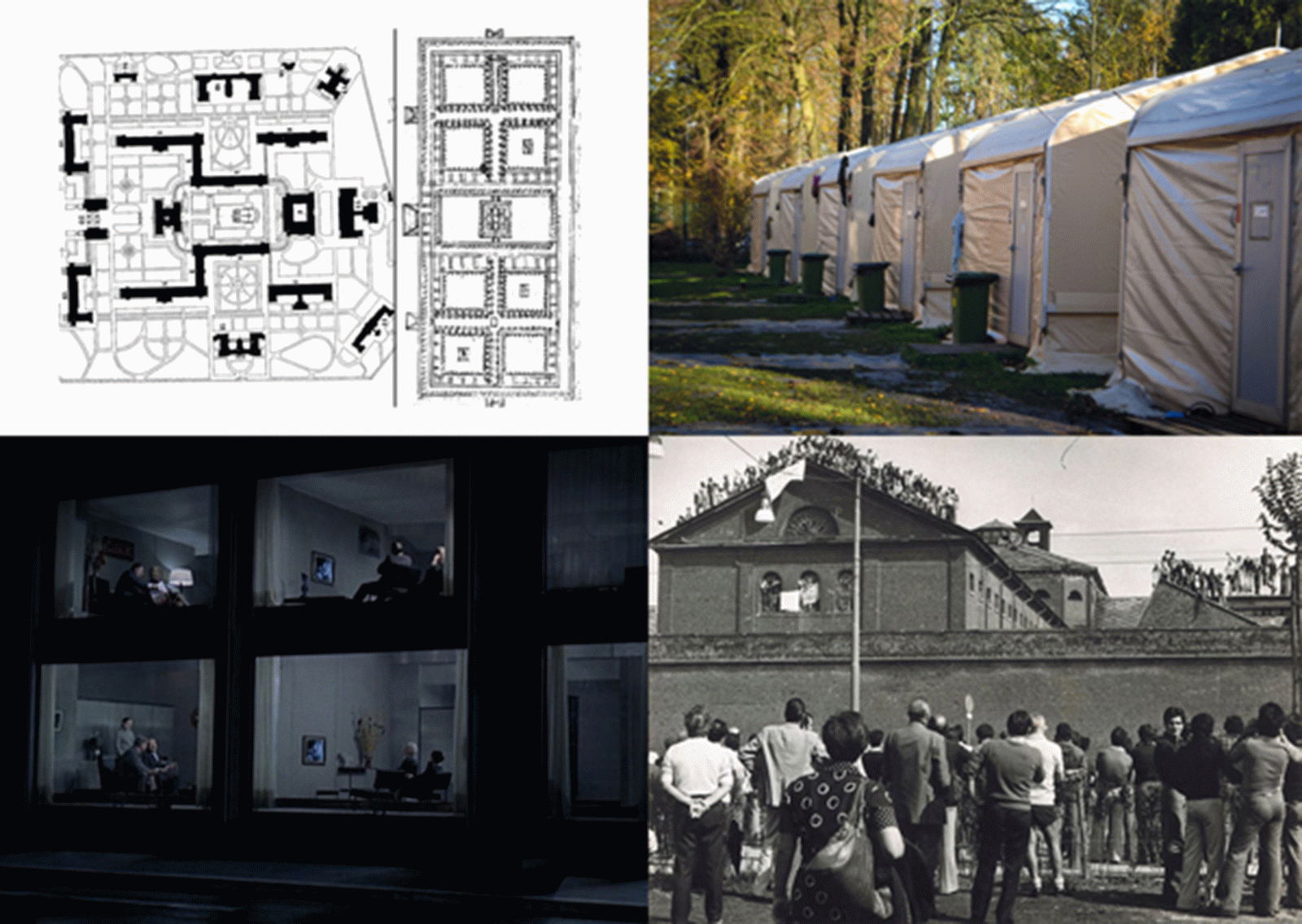Etica & architettura-Dialogo
The Architect's Confrontation with Social and Societal Problems

In his essay on "Ethics and Aesthetics in Architecture", Maurice Lagueux addresses the peculiar position of architectural practice in relation to ethics. In contrast to disciplines as the applied sciences, so Lagueux argues, ethical questions are not external, but inherent to the very practice of the architectural discipline. While scientists are judged on the knowledge they bring forth, and can pass ethical questions concerning the application of this knowledge to philosophers, sociologists, politicians, citizens etc., architects cannot. Through their very activity, architects produce the framework in which social life takes place. The production of this framework, the setting up and breaking of boundaries raises ethical questions, which need to be discussed. Should the architect build open houses for refugees to encourage social contact? Or should he respect the privacy of the individual, and the individual family? Should he propose to locate hospitals in remote and quite places to create a calm setting for the patients? Or should he advice to build it near the city where family members have easy access for visiting? It is important that to Lagueux, architecture should not turn to philosophy to find appropriate answers to these manifold ethical questions, but should rather look at its own discipline, at its own practice.
In the third dialogue organized by the research group "Ethics and Architecture" we will speak with four students from the Department of Architecture and Urban Planning of Ghent University. The students will present their on-going research project, as part of their master's thesis. In these research projects, the students explore ethical questions that arise when certain social programs need to be accommodated (prisons, hospitals, refugee shelter), as well as the responsibility of the architect in addressing these questions. In the architectural project, the architect is, however, only one person among many. The shared responsibility of policy makers, institutions, urban planners and architects, as well as the (im) potency of the architect in this process, thus needs to become part of the discussion.
Nicolas Gielkens
The Architect's Responsibility or a Personal Fascination? Eroticism in Contemporary Architectural Practice and Theory
Lize Weyenberg
The History of the Prison as a Humanizing Institution: A Case Study of Past and Present Turin Prisons
Marie Vercraeye
Hospitals Accommodating Religion: The Ospedale Maggiore and Ospedale Niguarda in Milan
Ella Vanden Houte
The Architecture of Arriving: A Comparison of Infrastructures for Asylum Seekers in Belgium
References:
Lagueux, Maurice 2004 Ethics versus Aesthetics in Architecture. The Philosophical Forum 35 (2): 117-133
Koutsoumpos, Leonidas 2010 InHumanities. Ethics in architectural praxis. In: The Humanities in Architectural Design: A contemporary and historical perspective. Edited by S. Bandyopadhyay, J. Lomholt, N. Temple and R. Tobe. London and New York: Routledge. 16-27
23 febbraio 2016, ore 09:30
Kunsthistorisches Institut in Florenz - Max-Planck-Institut
Casa Zuccari
Via Gino Capponi 22
50121 Firenze
Avviso
Questo evento viene documentato fotograficamente e/o attraverso riprese video. Qualora non dovesse essere d’accordo con l’utilizzo di immagini in cui potrebbe essere riconoscibile, da parte del Kunsthistorisches Institut in Florenz a scopo di documentazione degli eventi e di pubbliche relazioni (p.e. social media) la preghiamo gentilmente di comunicarcelo.



